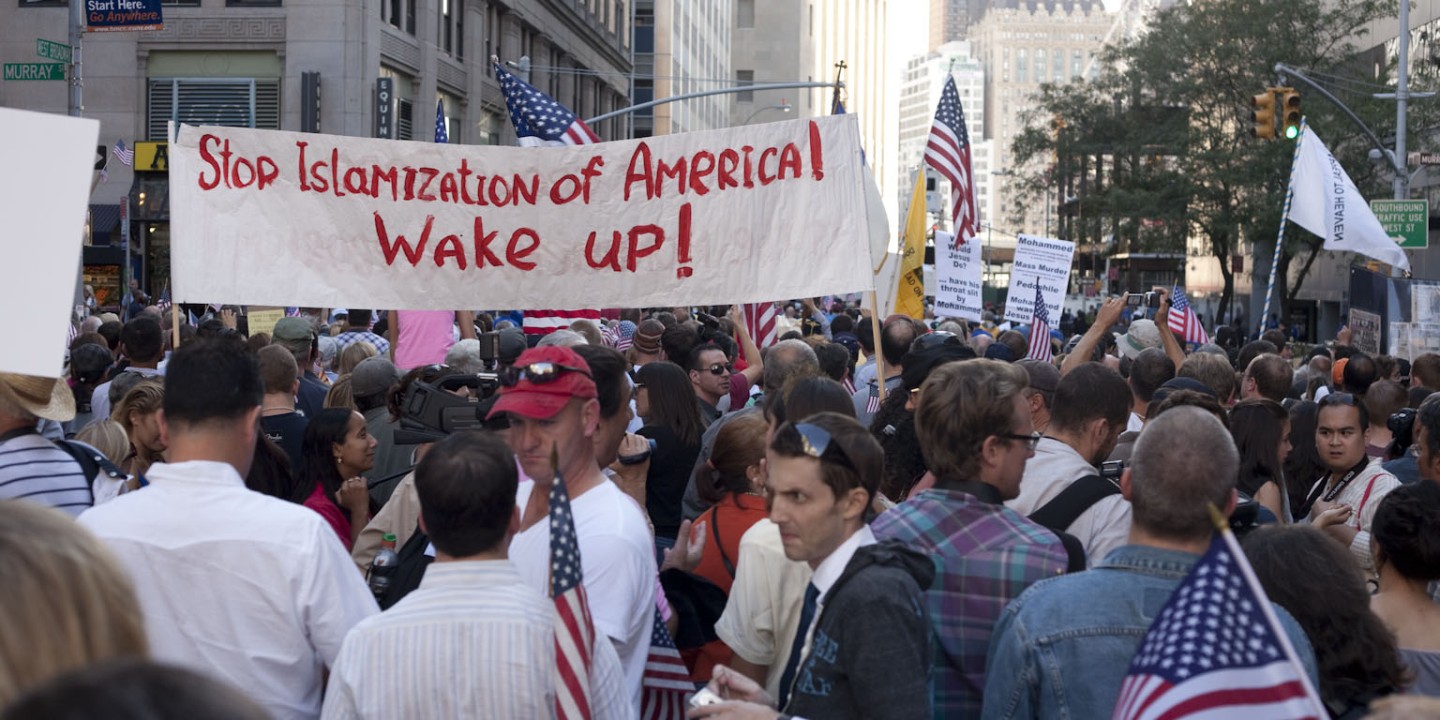Muslim neighbors
The protesters carried American flags and signs: “America is a Christian Nation. Muslims Are Not Welcome!”
On a recent trip to Dallas I watched on TV as hundreds of Muslims attending a conference were confronted by red-faced protesters carrying American flags and signs: “America Is a Christian Nation. Muslims Are Not Welcome!” “Islamists: Go Back Where You Came From and Take Obama With You!” They were responding to what a tiny cell of Islamic extremists did in Paris—murdering most of the Charlie Hebdo editorial staff, a police officer, and four customers at a kosher grocery store.
Muslims have spoken up in response to the attacks, decrying the violence and distancing themselves from the acts. In Time magazine, former NBA star Kareem Abdul-Jabbar described how Muslims are required, after a terrorist attack carried out by Islamic extremists, to “disavow and explain—again—how these barbaric acts are in no way related to Islam.”
Yet it’s not helpful to gloss over the fact that the perpetrators of these acts of violence use the rhetoric, if not the theology, of a form of Islam. As Thomas Friedman wrote, “It is not good for us or the Muslim world to pretend that this spreading jihadist violence isn’t coming out of their faith community. It is coming mostly, but not exclusively, from angry young men and preachers on the fringes of the Sunni Arab and Pakistani communities in the Middle East and Europe.”
Although jihadist violence is abhorrent to the vast majority of Muslims, there is a form of Islam that is spawning it. University of Chicago lecturer Azeem Ibrahim explains that Wahhabism, named for Muhammad ibn Abd al-Wahhab, emerged in the 18th century and was based on the conviction that most Muslims had strayed from authentic Islam. Purifying the religion led to excommunications, purges, and executions of apostate Muslims. Ibrahim says that Wahhabism would be a footnote in history except for the discovery of oil. Saudi Arabia finds it convenient to use its oil wealth to promote Wahhabism as a way to support the monarchy and maintain the status quo.
We need to slow down and think carefully about what is happening. Then perhaps we can reach out to Muslim neighbors. Churches could contact their local Islamic organization or mosque and invite Muslim brothers and sisters to sit down and break bread together. Hans Küng said that there will be no world peace until there is peace among world religions, and there will be no peace among religions until there is dialogue. Those words were never more relevant and urgent than now.






